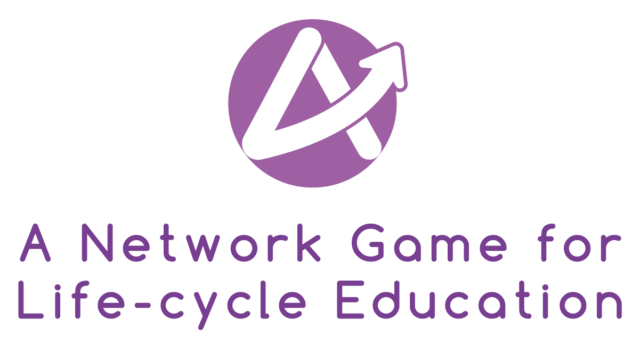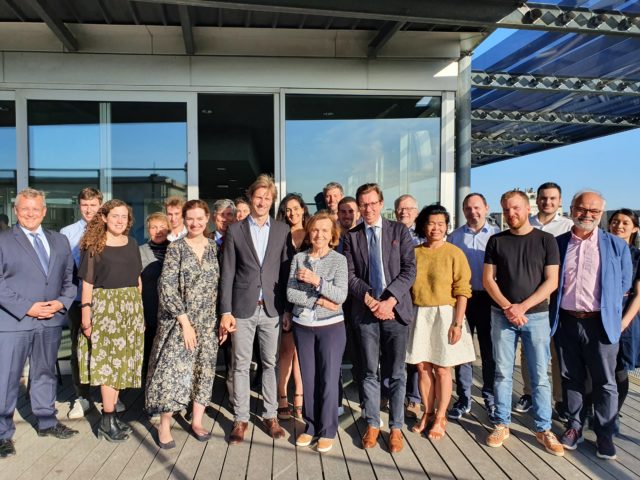A Network Game for Life-cycle Education
PARTNERS
ANGLE brings together partners from several countries (FI, FR, IT, NL, PL) with diverse academic and not for profit engagement backgrounds: from rigorous teaching and research, to involvement in advocacy, policy making, consumer and investor protection, to facilitating transitions from study to work; from expertise in financial markets to know-how in serious games design and implementations.
The partnership includes:
CeRP – Collegio Carlo Alberto (leading partner)
Founded in 1999 as a joint project of the University of Turin and the Compagnia di San Paolo (an Turin based Foundation), CeRP is the first research center in Italy (and one of the first in Europe) with a specific focus on households’ savings, pension economics, population aging and financial literacy. Since September 2006 the Center is affiliated, as a research unit, to the Collegio Carlo Alberto. The mission of CeRP is to investigate the consequences of population aging, with an emphasis on factors affecting savings for old age, retirement and, in general, the welfare of the elderly. Theoretical and applied policy-oriented research play an approximately equal role in the activities of the center.
Principal Investigator: Elsa Fornero
Project management: Marco Disarò and Silvia Maero; Project communication: Silvia Maero
ETLA Economic Research
ETLA Economic Research (Etla) is an independent, private, non-profit economic research institute. ETLA is engaged in applied economic research with emphasis on topics that are important from the Finnish point of view. The main focus is on issues that relate to productivity and drivers of its growth, to the functioning of the labour market, as well as to challenges in maintaining a balanced macro economy including sound public finances. ETLA monitors economic development, compiles forecasts as well as assesses economic policy and comments on it. During the last 40 years the researchers of ETLA have participated in more than 20 domestic and international research projects related to financial markets, household saving and portfolio decisions and population ageing.
National Institute for Family Finance Information (Nibud)
Nibud (National Institute for Family Finance Information) is a very well-known, independent and respected independent foundation in the Netherlands that gives information and advice on financial matters of private households. Its mission is to contribute to family welfare by promoting a sound way of money management. On the one hand, Nibud supports households to make sound decisions in financial matters. On the other hand, Nibud increases the expertise of other organisations and institutions on financial issues and the way in which households do their financial planning. These institutions range from banks, financial service providers and advisors via national and local governments to debt help organizations and schools.
Palermo Urban Solutions Hub (PUSH)
Founded in 2013, Palermo Urban Solutions Hub (PUSH) is a design lab. They help communities, public bodies and private organizations to innovate and have an impact in a sustainable way. PUSH develops social and urban innovation projects in several areas: the actions' scopes go from the streamlining of bureaucratic processes to urban interventions based on co-design, from the safeguard and valorization of the historic and artistic assets to the processes of transformation and evolution of the urban culture. It aims to be a reference point for citizens, public administrations and authorities to foster innovation policies and transform them into realistic and efficient projects. PUSH consists of a team of 10 young researchers – service designers, software developers, architects, engineers and experts in communication – connected by passion for technology and urban dynamics, with the certainty that a concrete and sustainable change must start from the bottom with the right mix of competencies, creativity and determination.
SGH-Warsaw School of Economics
The Warsaw School of Economics (in Polish: Szkoła Główna Handlowa w Warszawie, SGH) is the oldest university of economics in Poland and one of the leading universities of economics in Europe. SGH was founded in 1906 as the first public university of economics and management in Poland. It maintains close links with the business community that facilitate conducting research projects and providing education with focus on real economy and financial markets operation. SGH is ranked Poland’s top research university in economic sciences, with the grade of excellence awarded by the Ministry of Science and Higher Education. The research activity concentrates in the institutes, chairs and departments comprising five Collegia. Annually about 2000 alumni graduate from the SGH. Every year SGH organises over 40 local & international seminars and conferences on different current economic and social topics. Members of the Polish Pension Group SGH (PPG-SGH) will participate in the project.
ST Skills Together Srls
ST Skills Together is a not for profit start-up aimed at developing innovative educational approaches and technologies and at signaling the quality of education. It was founded in 2015 in the context of the implementation of the European Youth Guarantee Program in Italy by Daniele Fano, an economist who is currently focusing on transitions from study to work. The objective of St Skills Together was and still is to fill two important gaps: first of all, the lack of an appropriate signaling and guidance system for educational paths, especially with reference to Life-long, Technical, Vet and Artistic education, so as to allow the NEETs and the Unemployed to improve their employability; second, the insufficient development and use of educational technologies able to capture the interest and the psychology of younger generations.
Tilburg University
Tilburg University (TiU), founded in 1927, has over 12,000 students, of which more than 270 PhD-students. TiU has a focus on social innovation. TiSEM (Tilburg School of Economics and Management) is the largest faculty of the university. The research will be embedded in Netspar (Network for Studies on Pensions, Aging, and Retirement), an institute which is formally part of TiSEM but is essentially a network linking universities and the public and private sector parties in the pension and retirement domain. Netspar is dedicated to promoting a better understanding of the economic and social impact of pension systems, aging populations, and retirement in the Netherlands and Europe. It organizes a ‘triple helix’ network for research, dissemination and innovation in the Netherlands in which universities cooperate with private sector partners, the Dutch government, supervisors and the national science foundation.
Université Paris Dauphine
Université Paris-Dauphine, a public management university created in 1968, has a unique position in the French academic landscape: a university and a Grande Ecole rolled into one.The university is specialised in the Organisation and Decision-making Sciences. Its mission is to be of service to society and to the globalisation of higher education by creating and disseminating knowledge in applied organisation sciences and by educating responsible managers and researchers open to diversity and to the world. Université Paris-Dauphine strives to combine the strengths of a university – education through research and for research – with the strengths of a business school – selectivity and professionalisation of curricula. The study will engage researchers affiliated with Dauphine University’s Economics Department.




